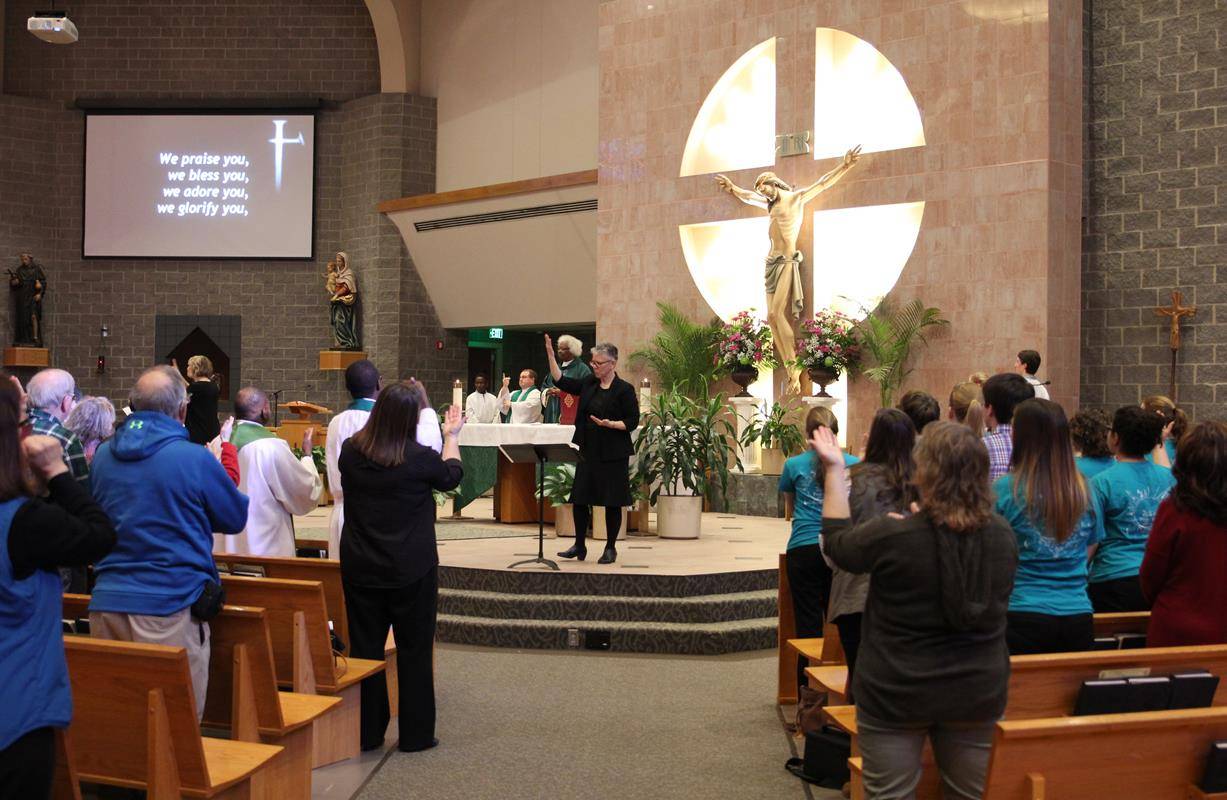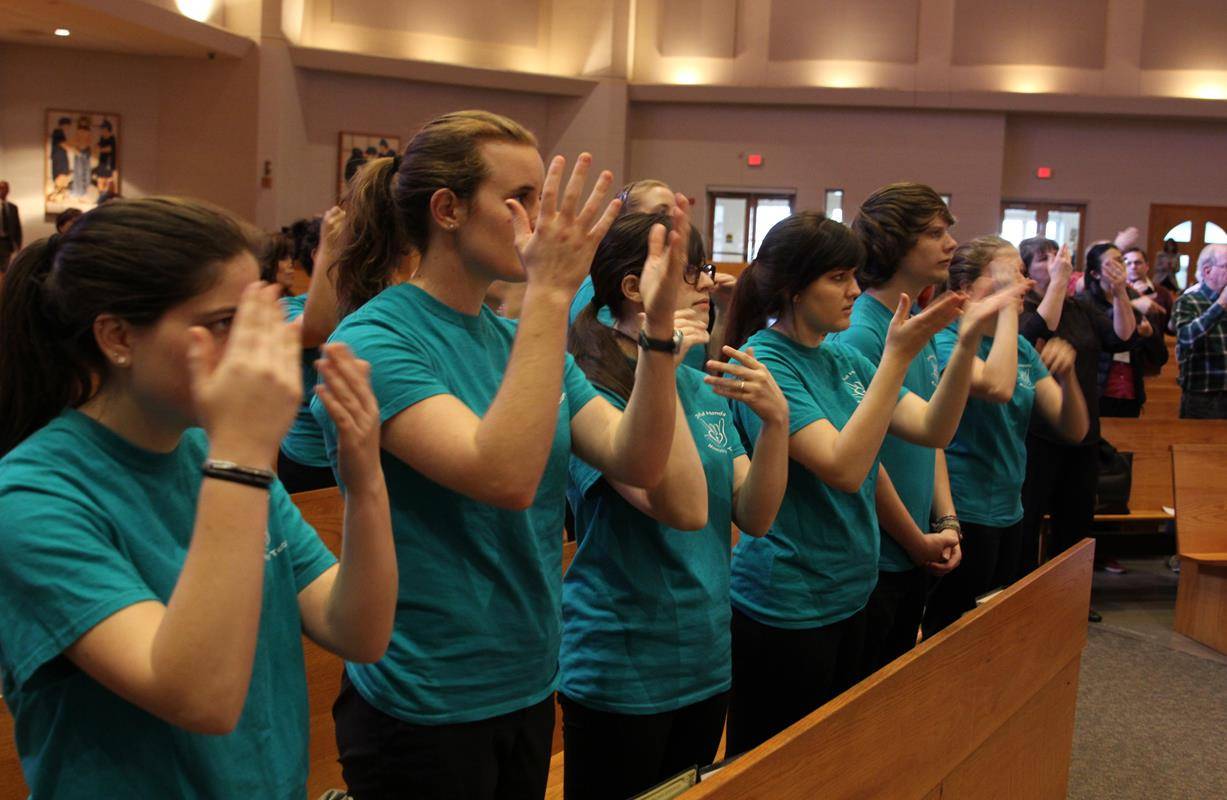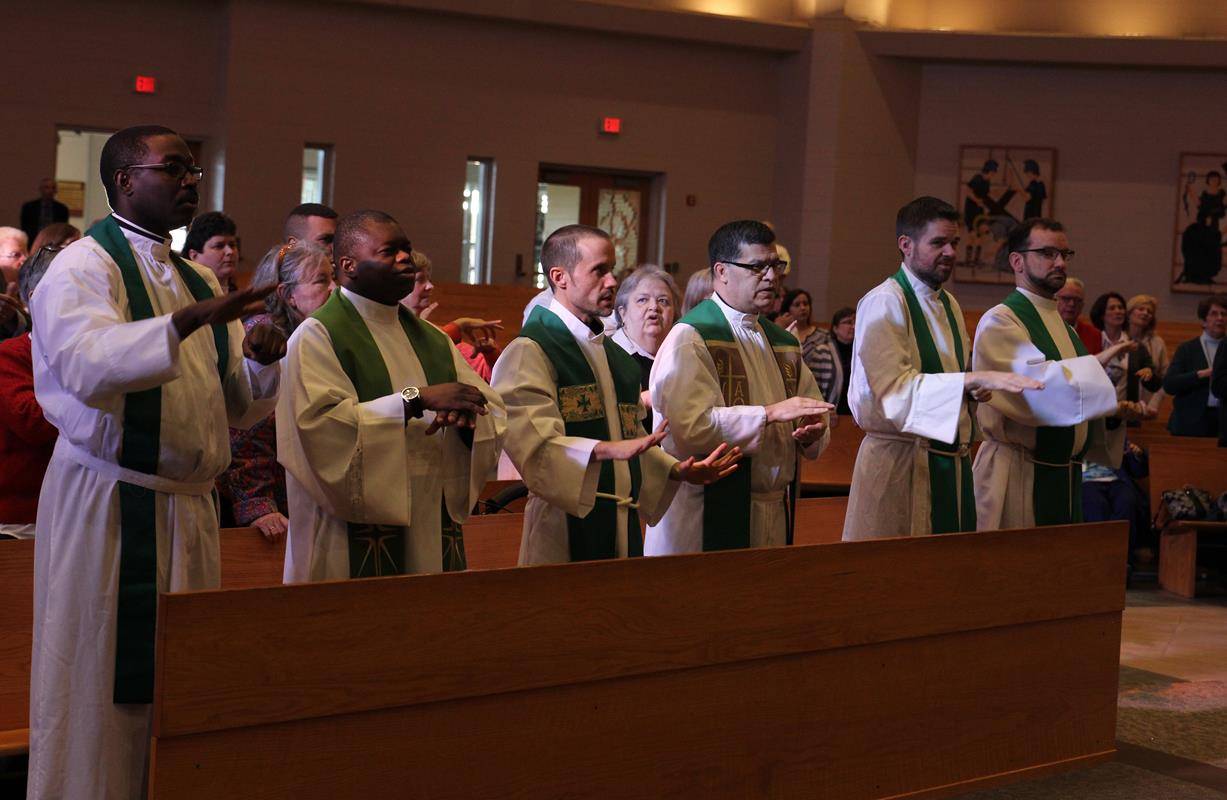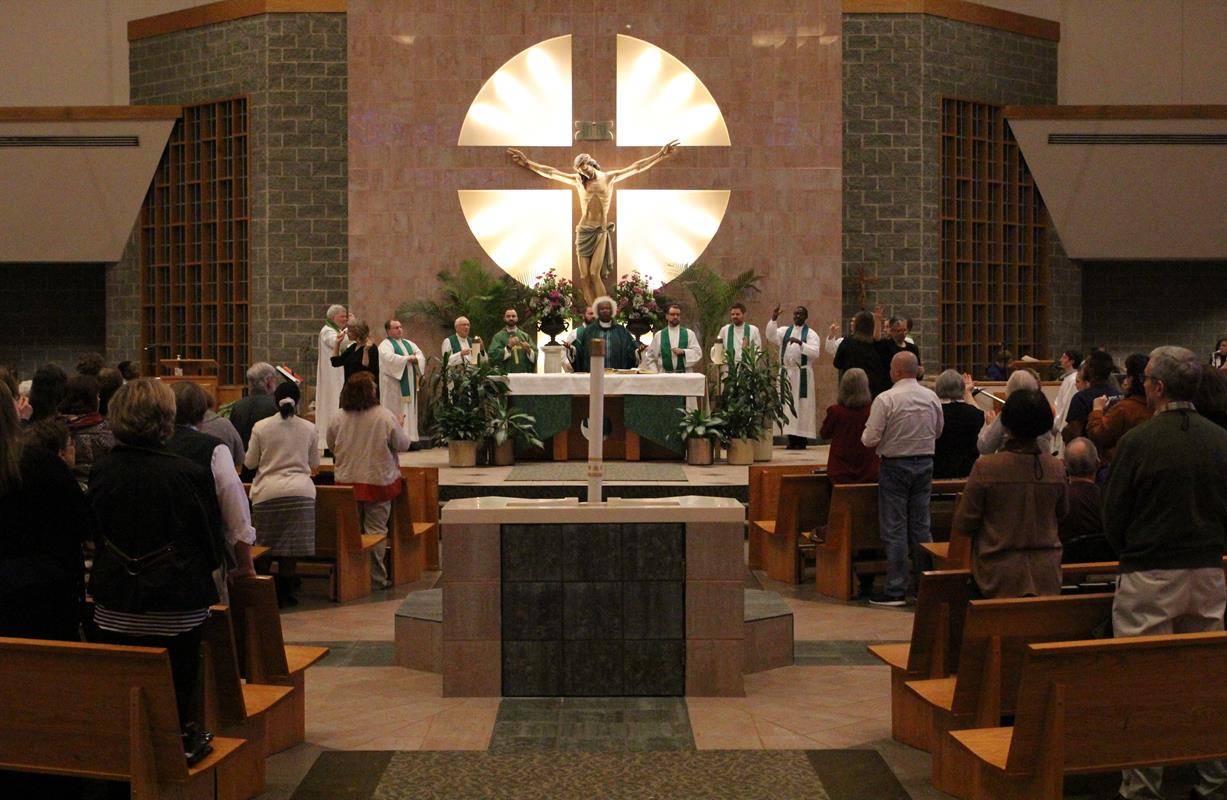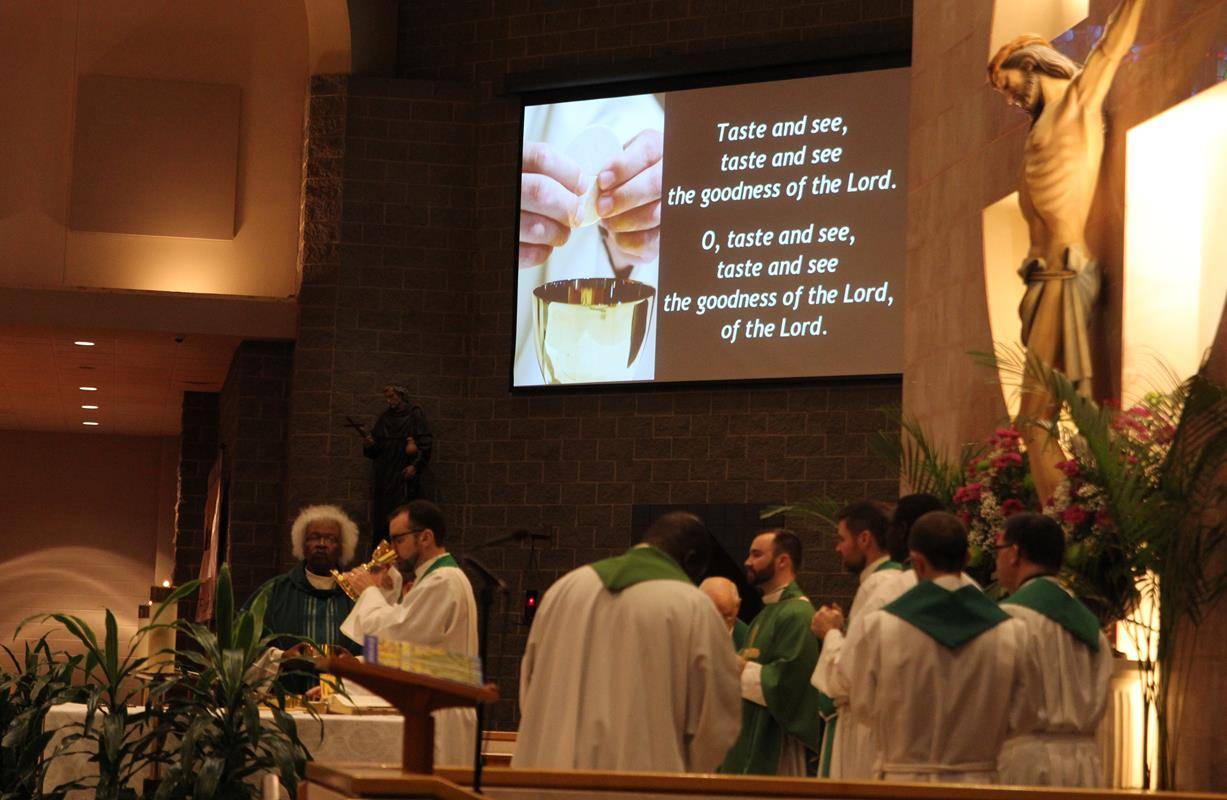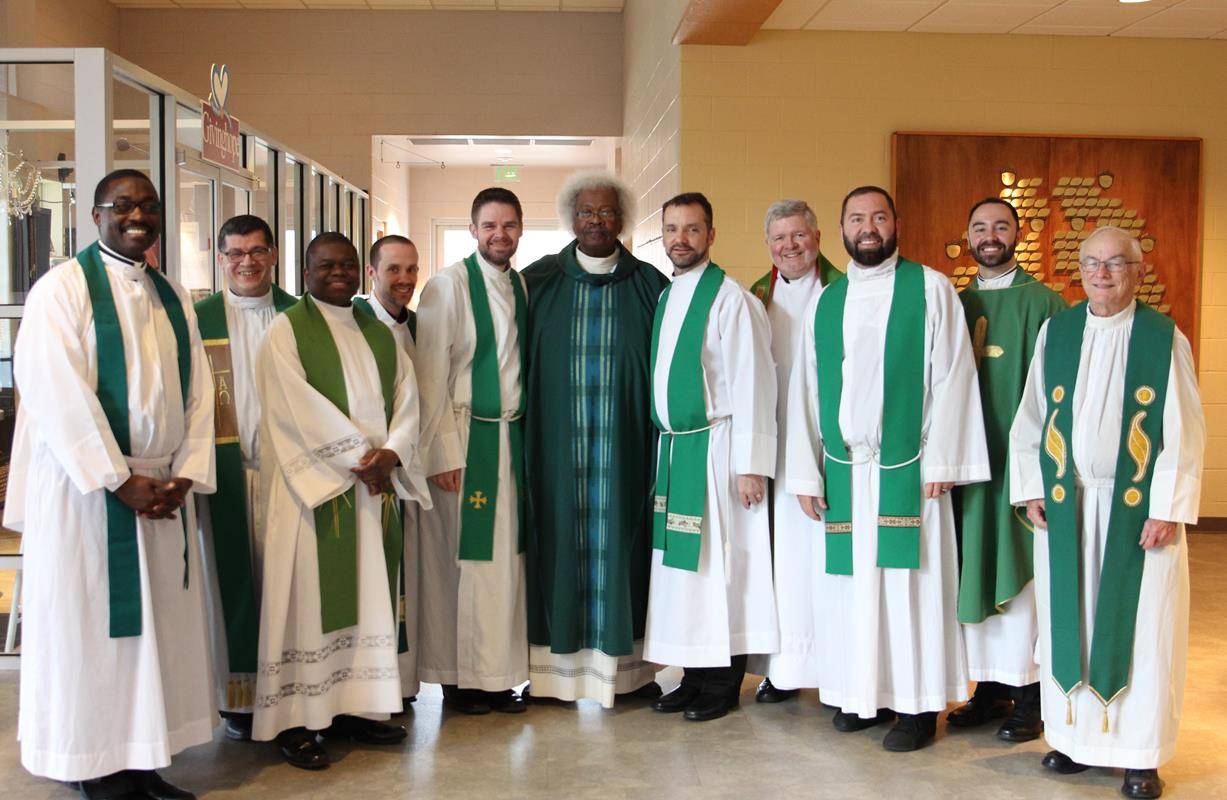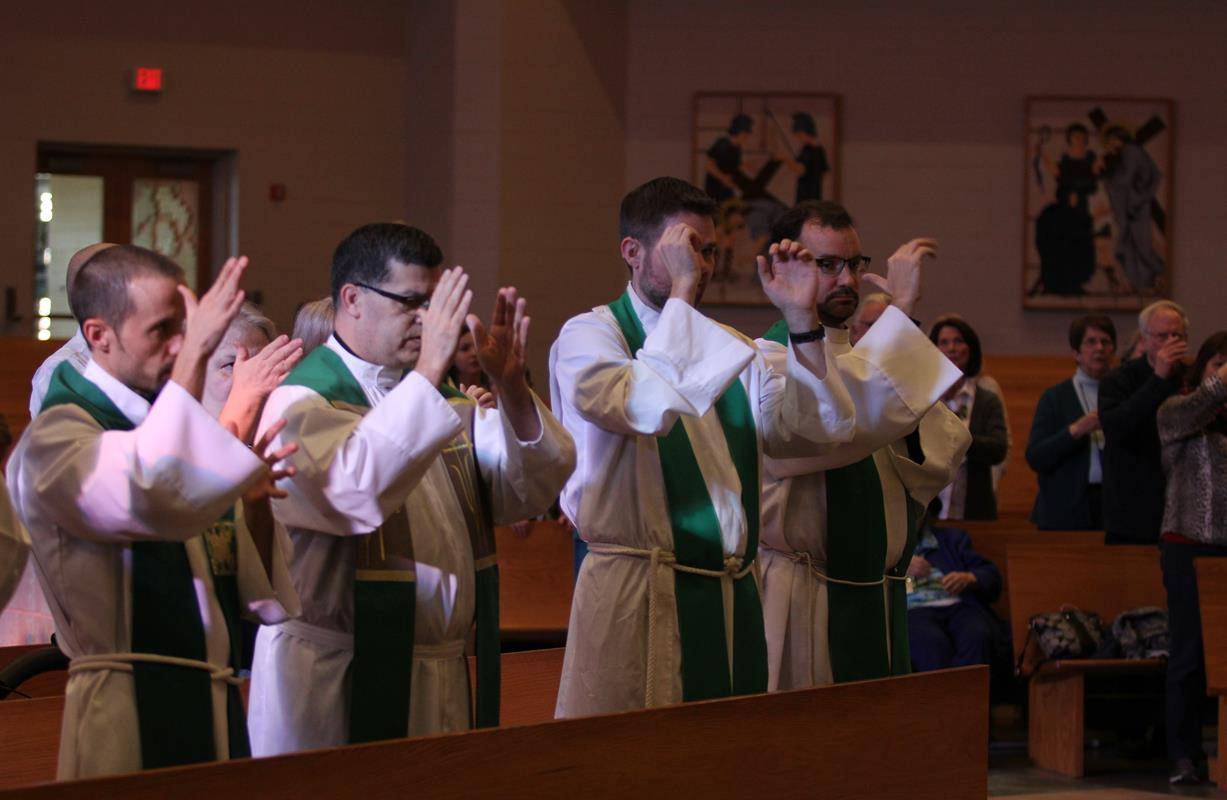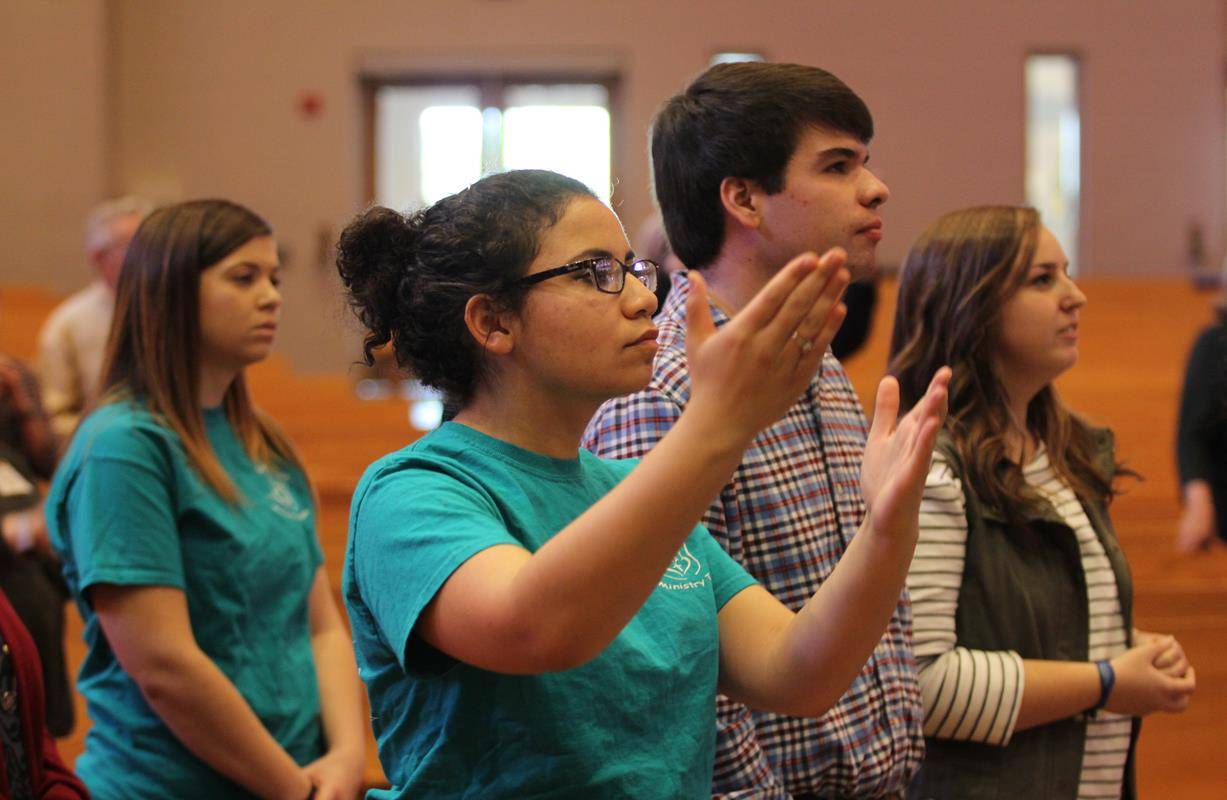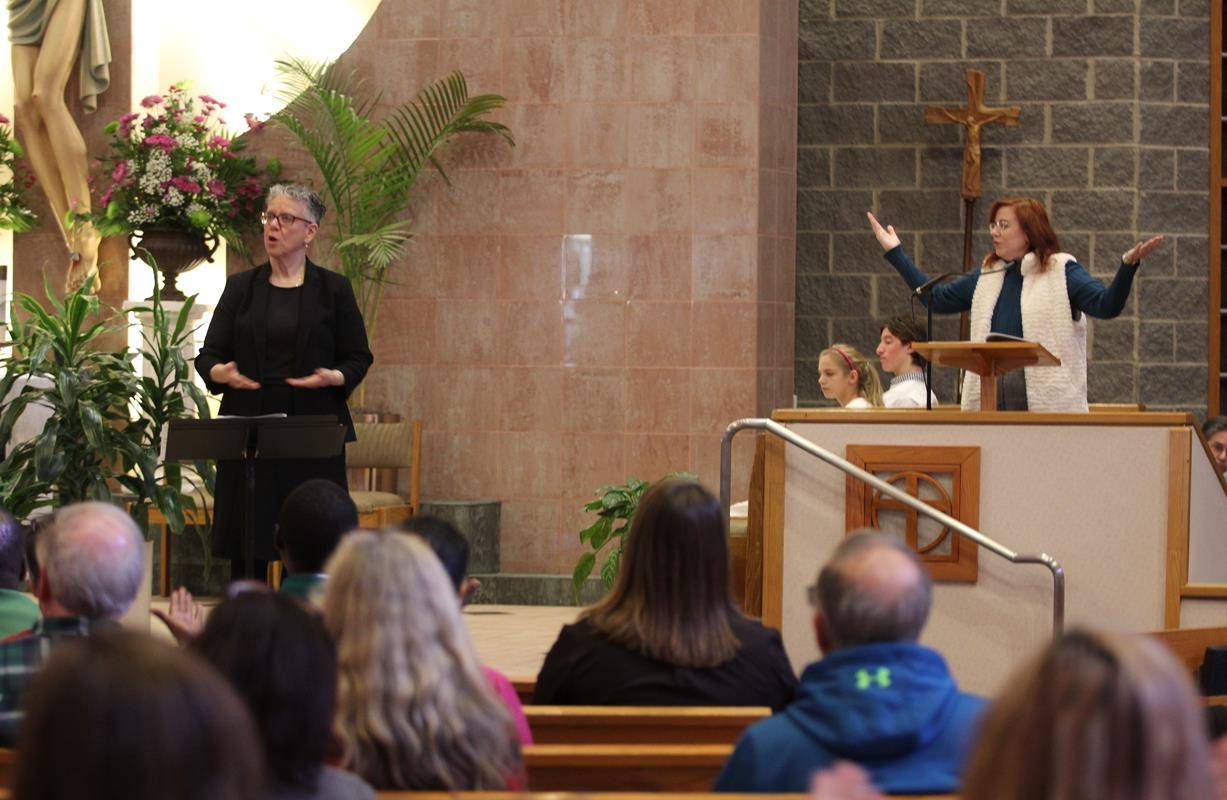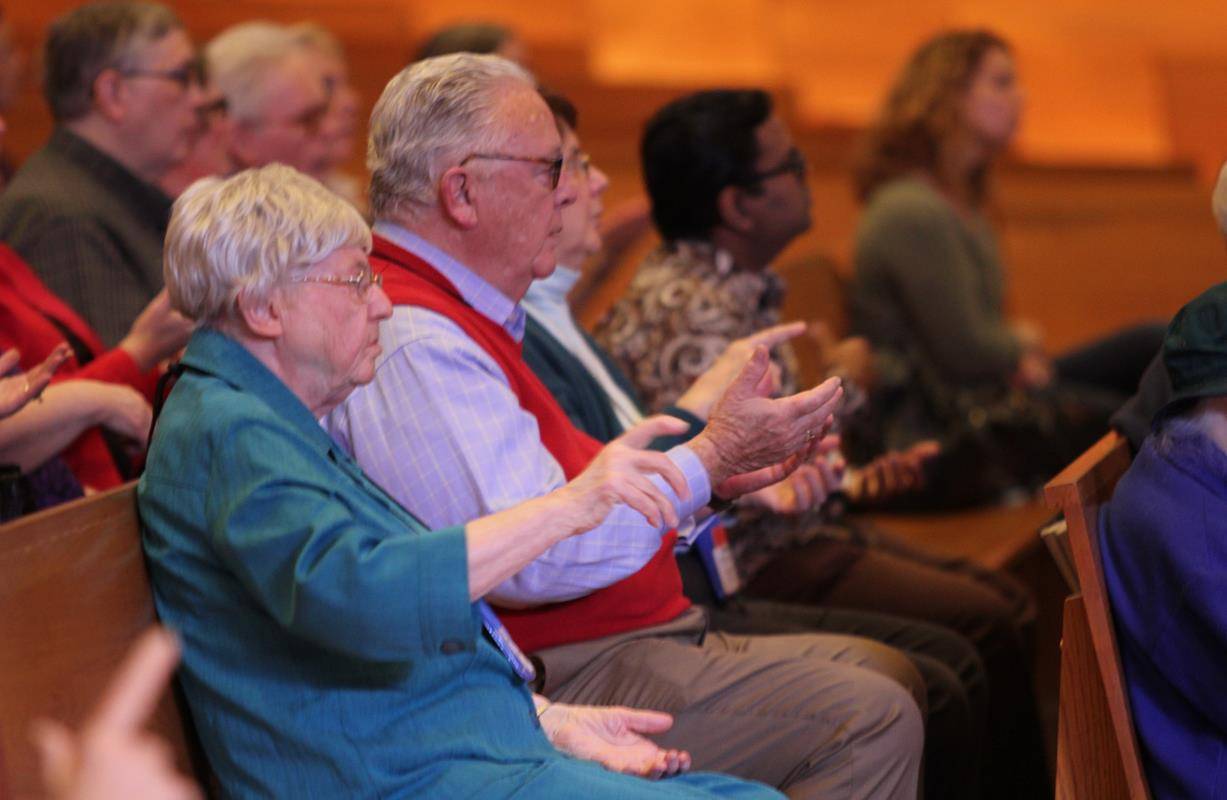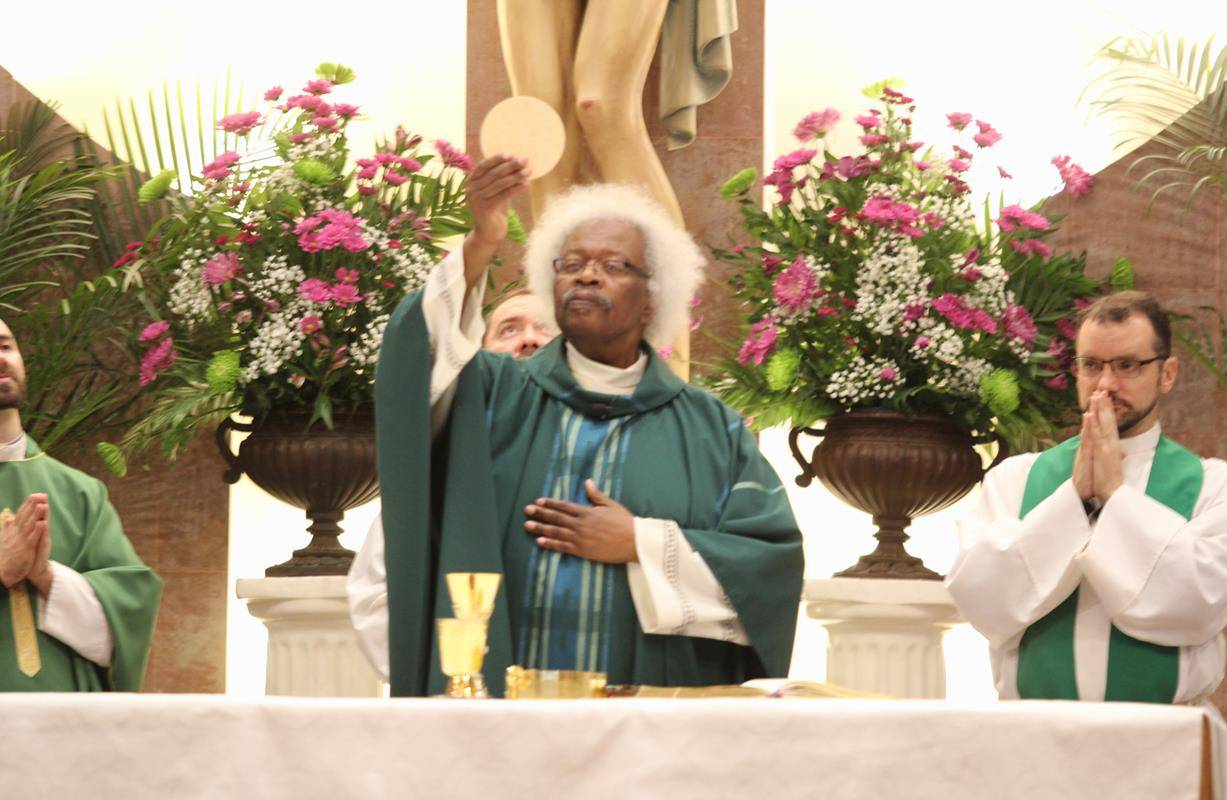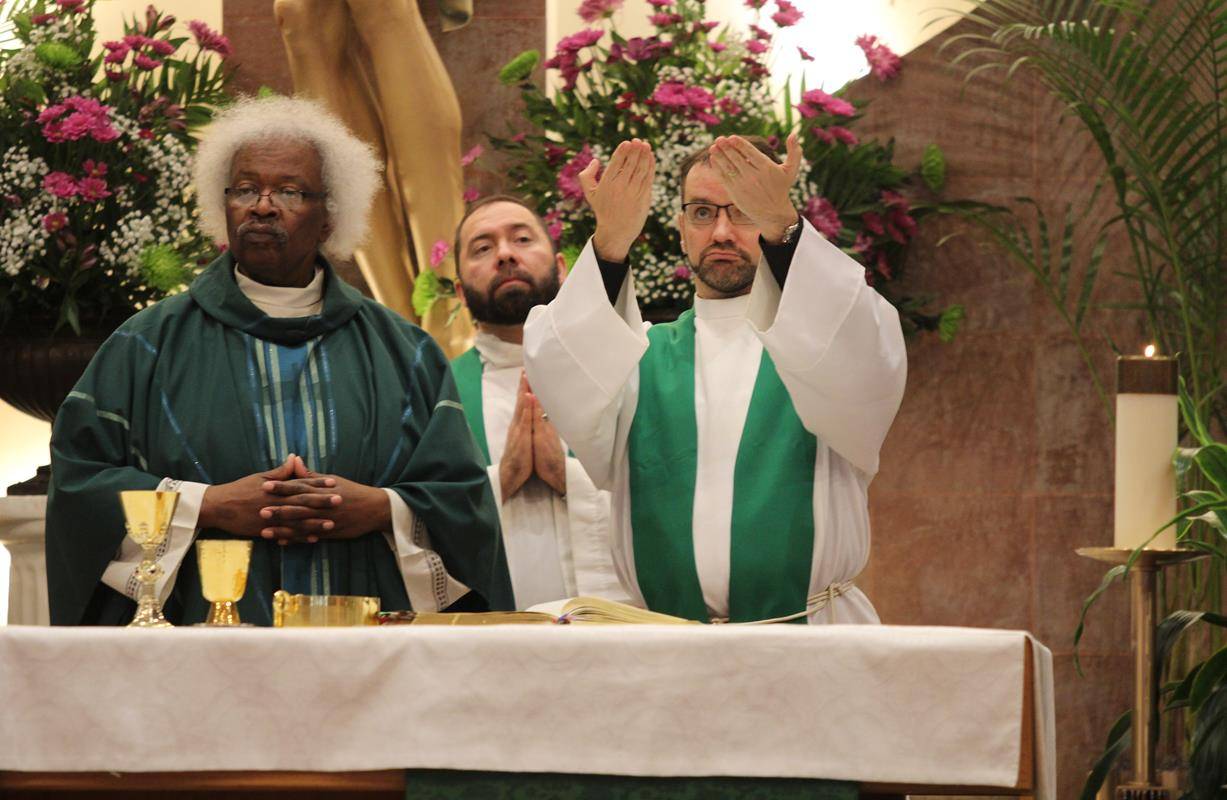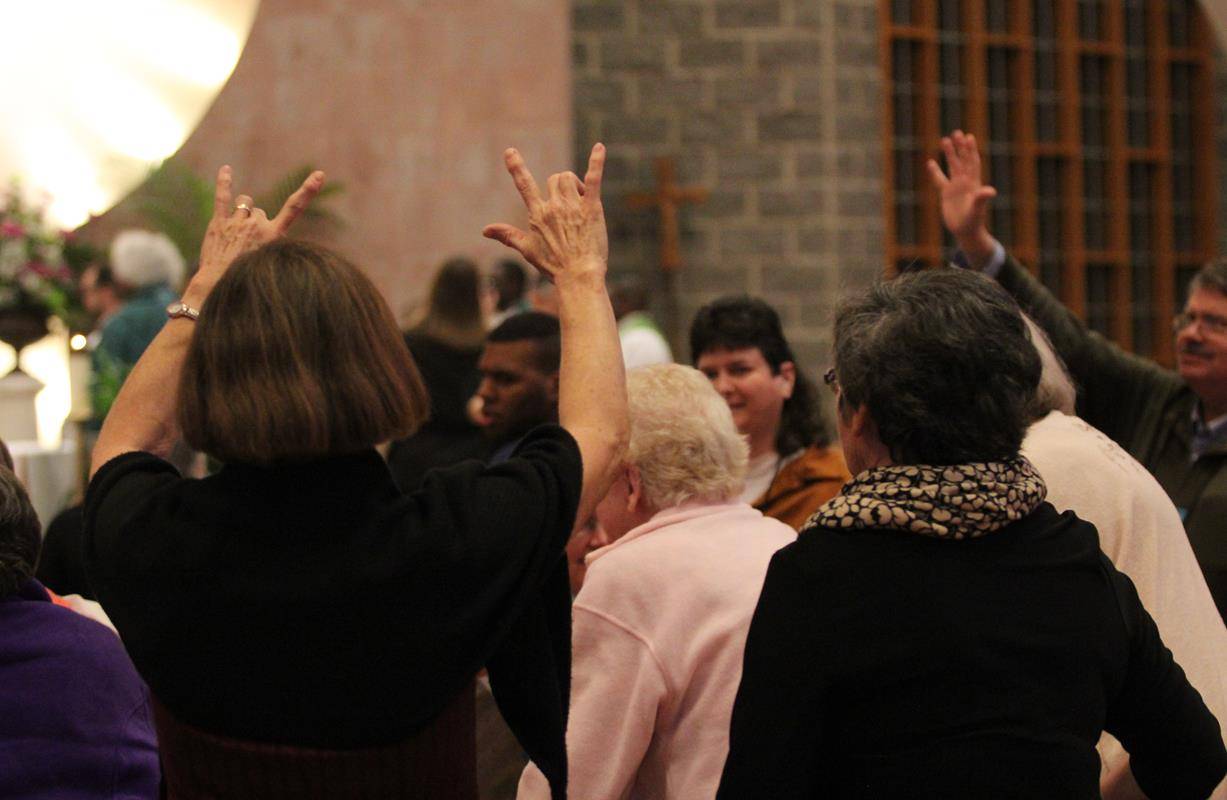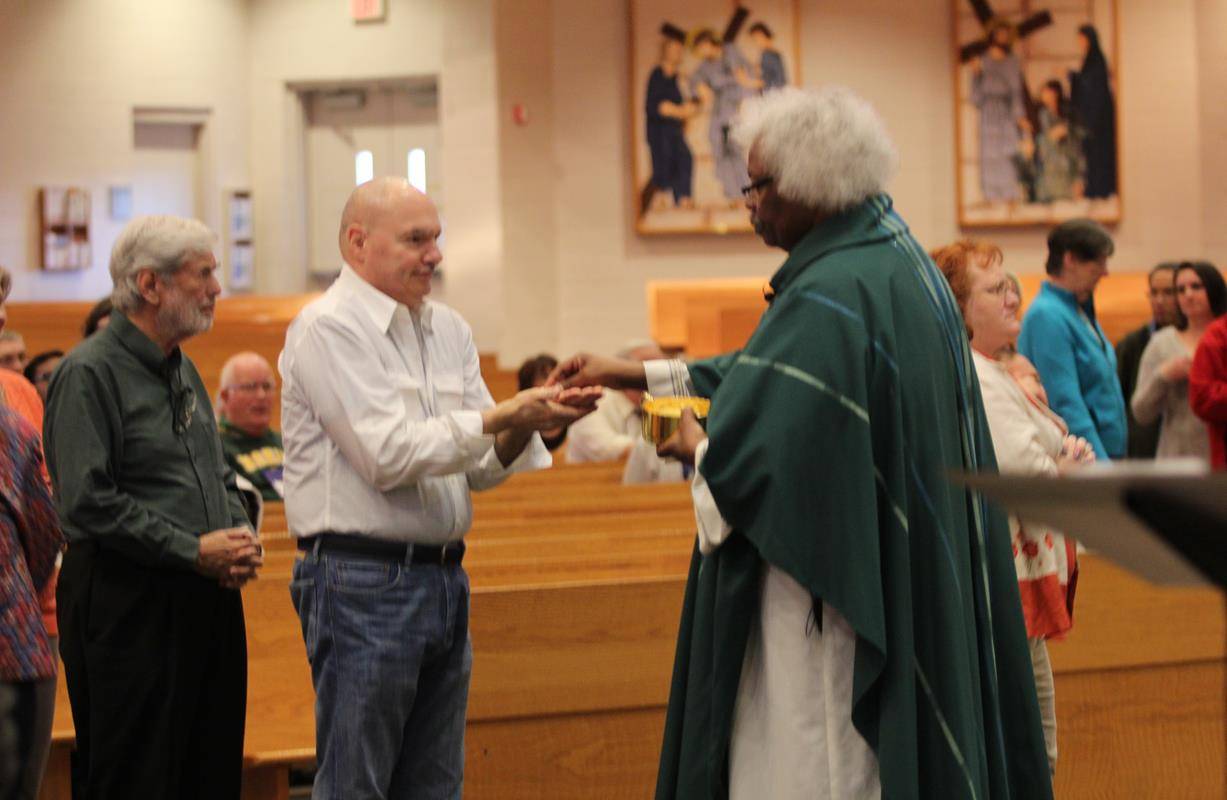 CHARLOTTE — Blessings and graces abounded at the Latin High Mass on the Vigil of the Epiphany of the Lord in the chapel at Charlotte Catholic High School Thursday night.
CHARLOTTE — Blessings and graces abounded at the Latin High Mass on the Vigil of the Epiphany of the Lord in the chapel at Charlotte Catholic High School Thursday night.
Father Jason Barone, school assistant chaplain, blessed the school after Mass with blessed chalk and Epiphany Holy Water.
Before celebrating a Latin High Mass at Charlotte Catholic High School on the Vigil of the Epiphany this evening, Father Barone blessed Epiphany Water, salt and chalk for the faithful to use in their homes.
Dozens of students attended the Latin High Mass at the school’s chapel.
The blessing of Epiphany Holy Water is an ancient custom and is more powerful than ordinary holy water as it contains several prayers and exorcisms in the blessing.
The Feast of the Epiphany, also called Three Kings Day or Theophany, is traditionally celebrated on the 12th day after Christmas, on Jan. 6. In the dioceses of the United States, this feast has been moved to the Sunday between Jan. 2 and Jan. 8.
Celebrate the feast of the Epiphany by planning a blessing of your home, as a witness of your Catholic faith and for protection against evil.
Ask a priest to bless a piece of chalk, then draw a cross over your front door along with the following characters: 20+C+M+B+17.
The 20 and the 17 stand for the new year, and the letters C, M and B are both the initials of the three Magi (Caspar, Melchior and Balthasar) as well as the initial letters of the Latin phrase "Christus mansionem benedicat," which means "Christ bless this house."
— Catholic News Herald. Photos by SueAnn Howell, Catholic News Herald
 KANNAPOLIS — Unbound, a ministry which equips local churches and ministries to pray for the spiritual and emotional freedom of others, will host the Unbound Freedom in Christ Conference March 10-11 at St. Joseph Church.
KANNAPOLIS — Unbound, a ministry which equips local churches and ministries to pray for the spiritual and emotional freedom of others, will host the Unbound Freedom in Christ Conference March 10-11 at St. Joseph Church.
Unbound is a non-confrontational ministry which focuses on the love, mercy, healing and forgiveness found in Jesus Christ. It was co-founded by Neal and Janet Lozano of Heart of the Father Ministries, Pa. The Lozanos have more than 30 years of pastoral experience helping people find freedom in Jesus Christ. Neal Lozano is an international speaker and a leader of evangelistic outreach to students. Janet Lozano leads the training team and missions.
The session on Friday, March 10, which will be held from 8:30 a.m. to 4:30 p.m., is a training session for those who wish to apply this ministry in their parishes. The training consists of a teaching and a ministering session. A teaching entitled “UNBOUND: Principles and Practice” will be presented, then reinforced during the conference as each of the principles is examined in depth.
Participants will use their training on Saturday, March 11, on the ministry team. One person will lead the group as those recently trained pray for those from the seminar who request prayer using the model that had been taught. The ministry team will pray during each session of the conference, so attendance is necessary at the entire conference.
Attendance at the Friday training session requires a special registration process.
The Saturday conference will be held from 8:30 a.m. to 4:30 p.m. It is open to everyone, with no special registration requirements. The day will include praise, talks by Neal Lozano, prayer time and the Father’s blessing.
Interested attendees are strongly encouraged to read Neal Lozano’s book “Unbound: A Practical Guide to Deliverance from Evil Spirits” before attending the training session or conference.
For more information and to register, go to www.unboundchltnc.org/conference.html. Questions may be directed to Julie Jahn, ministry leader, at 704-560-9202 or This email address is being protected from spambots. You need JavaScript enabled to view it..
— SueAnn Howell, senior reporter
The Catholic Campaign for Human Development (CCHD) remains one of the U.S. Catholic Bishops primary efforts to fight poverty at the grassroots level.
The annual CCHD national collection, held in November, is a source of both national and local funds to support organizations addressing the root causes of poverty in America.
Seventy-five percent of collected funds support CCHD’s National Grant Program, while 25 percent of the funds stay in the Diocese of Charlotte to support local CCHD poverty fighting efforts. This past spring, 12 local CCHD grants totaling $39,000 were distributed to non-profits located in nine cities of the diocese: Belmont, Brevard, Charlotte, Gastonia, Greensboro, Hickory, Shelby, Waynesville and Winston-Salem.
In the Diocese of Charlotte, the Local CCHD Grant Program is sponsored by Catholic Charities. Information about this grant program can be found on Catholic Charities’ website at www.ccdoc.org/cchdcrs.
Grant funded projects address poverty (and/or related social concerns) at its root causes. Non-profit organizations that give people who are poor a voice in how to address their struggles with poverty are especially encouraged to apply.
Grants provide funds of up to $5,000. The deadline for completed applications to be submitted via email, for consideration in the 2017 round of grants, is Feb. 15.
All non-profit applicants and their projects for which funds are sought are reviewed according to stated grant guidelines and eligibility criteria, including a review of the conformity of the organization and proposed project with Catholic social and moral teachings.
Applications from non-profits which are not Catholic entities of the diocese must be accompanied by a letter of endorsement from a pastor or deacon familiar with the non-profit’s work.
— Joseph Purello
CHARLOTTE — St. Joseph Vietnamese Church will host its annual Tet Festival Jan. 27-29, celebrating the start of the Lunar New Year.
The festival to welcome in the “Year of the Rooster” will include live music, traditional Vietnamese food and games, as well as performances by the parish’s own Hidden Dragon Lion Dance team.
The festival will be held from 6 p.m. to 1 a.m. Friday, Jan. 27; 6 p.m. to 11 p.m. Saturday, Jan. 28; and 9:30 a.m. to 2 p.m. Sunday, Jan. 29. Admission is free.
— Catholic News Herald
 CHARLOTTE — Participants in the annual National Catholic Office for the Deaf Pastoral Week Jan. 13-17 had an unusual and beautiful opportunity to worship together at Mass Jan. 15 at St. Matthew Church. Deaf priests and some hearing priests trained in American Sign Language signed throughout the Mass, even signing parts of the Eucharistic Prayer.
CHARLOTTE — Participants in the annual National Catholic Office for the Deaf Pastoral Week Jan. 13-17 had an unusual and beautiful opportunity to worship together at Mass Jan. 15 at St. Matthew Church. Deaf priests and some hearing priests trained in American Sign Language signed throughout the Mass, even signing parts of the Eucharistic Prayer.
During the one-hour Mass, sign-language interpreters were positioned on each side of the sanctuary, interpreting the Mass and leading deaf and hearing-impaired parishioners in signing the Mass parts and songs.
Monsignor Mauricio West, vicar general and chancellor of the Diocese of Charlotte, served as the main celebrant. Eleven priests attending the conference concelebrated Mass.
More than 100 members of the National Catholic Office for the Deaf from around the U.S. and Canada attended the Mass at St. Matthew Church and also the conference held at the Charlotte Crowne Plaza Executive Park Hotel in south Charlotte. The annual conference gives laity and clergy the opportunity to gather and receive valuable training and resources for deaf ministry in their dioceses and parishes.
St. Matthew Church has offered deaf ministry for its parishioners for more than 10 years under the leadership of pastor Monsignor John McSweeney.
“We are honored to host this national group,” Monsignor McSweeney said. “A very important aspect of our Masses at St. Matthew is the signing for the deaf. We are delighted that St. Matthew is able to host this event.”
Father Shawn Carey, a deaf priest from the Archdiocese of Boston who serves on the board of directors for the National Catholic Office for the Deaf, signed the Gospel reading at Mass.
“Deaf ministry is important because oftentimes the deaf people feel isolated, they have no access to faith, and they do need faith to have a good life and serve the Lord. They have to. Without that, then they are lost sheep, like an island all alone. But if they have faith, we can encourage them to continue their faith and follow the call of God.”
He expressed that for many years the Catholic Church was unsure of how best to minister to the deaf.
Father Carey, who is deaf, admitted that his vocation had its challenges, as he was initially denied entry to seminary. He was encouraged to persevere when he attended a movie providentially called “Signs,” where the main character becomes a priest at the end of the movie. He knew then he had to continue his journey towards the priesthood. He found St. Patrick’s Seminary in California, which offered a program for deaf men studying to become priests. They had interpreters to help seminarians study for the priesthood.
“Now I am a priest for almost eight years!” he said. He was ordained in 2009 by Cardinal Sean O’Malley at Holy Cross Cathedral in Boston and now serves as the director of the deaf apostolate for the Archdiocese of Boston.
Father Matt Alcombright, pastor of Mary, Mother of Hope Church in Springfield, Mass., is the director of deaf ministry for the Diocese of Springfield. His parish is the home of deaf ministry for the diocese. He is not hearing impaired but is trained in American Sign Language. Father Alcombright served as homilist at the Jan. 15 Mas.
“I was ordained in 2012 and became director of deaf ministry a month after my ordination,” he explained. “Deaf ministry is important to the Church because, as the Church teaches, we are supposed to have one faith, one people, one language – universality – and that includes the deaf.”
“As the Church documents say, it’s ‘full, active and conscious participation,’ so if you have deaf people with no interpreter or nothing for them, there is no participation, there is no consciousness of what is happening,” he said.
“It’s so important as to what the Church wants us to do. The Church wants us to provide these ministries not only to the deaf but those with any kind of disability. We need to provide for them,” he said.
Laureen Lynch-Ryan, a regional board president for the National Catholic Office for the Deaf, helped to organize the annual conference.
“The National Catholic Office for the Deaf hopes to provide support for pastoral workers throughout the nation, so we that can maintain deaf ministry and provide education not only to deaf children but to deaf adults and their families, so we can help them continue to grow in the Catholic faith,” she said.
Local deaf and hearing-impaired parishioners also attended the conference and some served as lectors at Mass.
Ron Kolodziej, a parishioner of Holy Spirit Church in Denver, signed the first reading. Deaf since the age of 5 after contracting the measles, Kolodzielj said he feels called to assist others in hearing the Word of God and growing in their faith. For more than a decade, he has served the deaf and hearing-impaired community in the Diocese of Charlotte, volunteering as an interpreter and also in faith formation ministry.
One of those whom Kolodziej assisted is a young man named Patrick Vellia, whom he has helped since Vellia was a teen. Vellia signed the second reading at Mass Jan. 15.
“Deaf ministry is an important aspect of the Church because it provides communication access to the deaf and hard of hearing members of the Church in a medium that they may receive the Word of God,” Vellia said.
Vellia participated in Life Teen during his high school years and founded the Joyful Hands Ministry at Gardner-Webb University while attending college there. After Mass, the Joyful Hands Choir performed a special song for the congregation.
Jona Maiorano, coordinator of deaf ministry at St. Matthew Church, believes the National Catholic Office for the Deaf has worked diligently to compile or create resources that are accessible to persons who are deaf or hard of hearing and then disseminate that information to parishes.
“They have developed religious education resources that are available to churches or parents for providing religious education to their children” she said. “NCOD also provides churches with training on how to work with their deaf ministries, in addition to providing spiritual opportunities and training for deaf and hard of hearing Catholics that want to be involved in the Catholic Church. Their efforts enable Catholics who are deaf and hard of hearing the ability to live their faith fully.”
The St. Matthew Knights of Columbus hosted a banquet for the conference participants after the Mass.
— SueAnn Howell, senior reporter
For more information
The National Catholic Office for the Deaf is dedicated to providing pastoral ministry to persons who are deaf or hard of hearing, so they may fully participate in the life of the Church. The NCOD does this by providing resources to bishops for developing and supporting deaf ministry programs, develop and provide religious education materials and provides pastoral training opportunities. To learn more, go to www.ncod.org






























